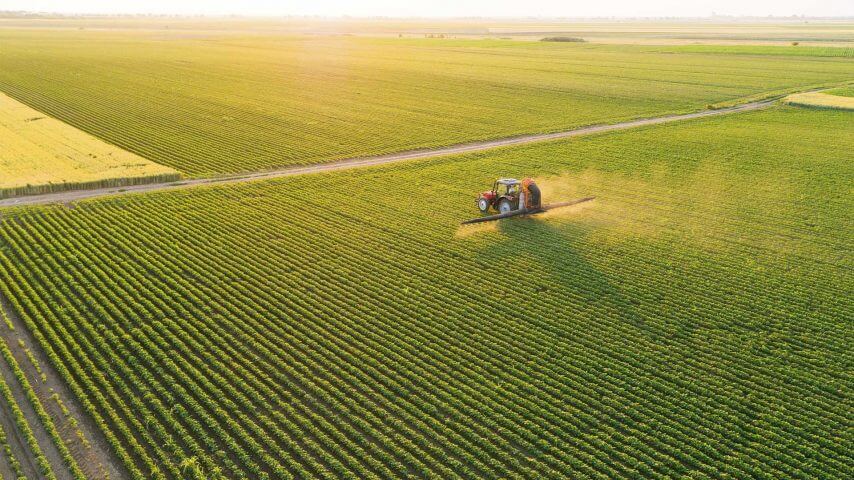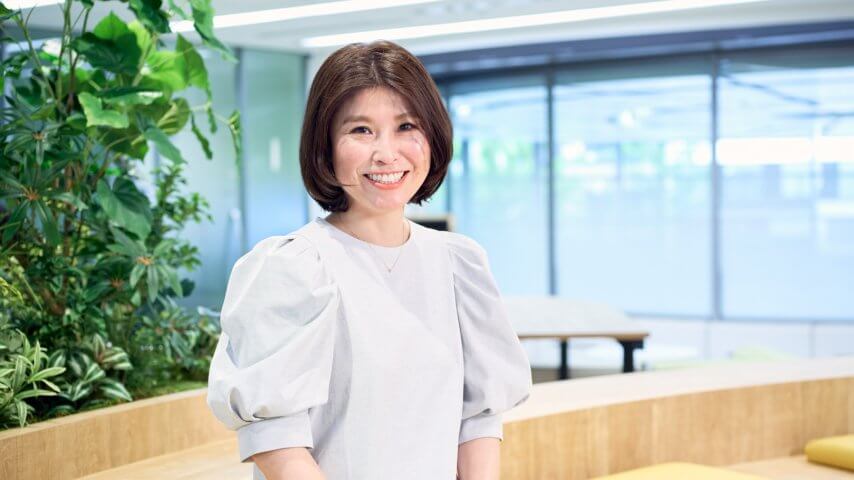Reading Time: 5minutes
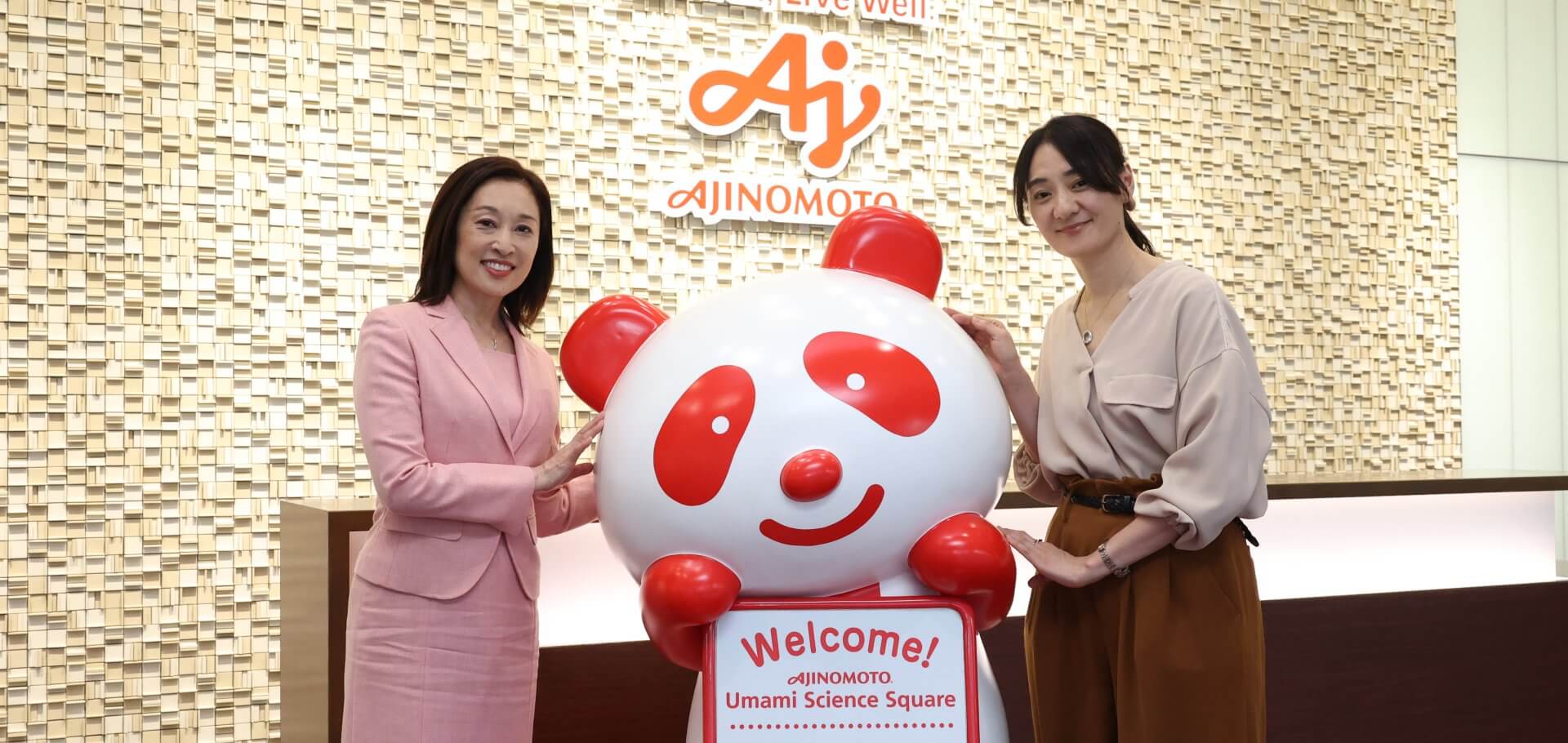
Table of Contents

Umami seasoning AJI-NO-MOTO® brings out the full flavor of ingredients and adds richness and depth to dishes.
For the Ajinomoto Group, which develops and sells umami seasoning AJI-NO-MOTO®, it is precising by virtue of being a company that deals with food resources that allows it embrace its sustainability activities and highly unique management policies.
In the production process of HONDASHI® Japanese soup stock, the Ajinomoto Group is working on “food loss and waste reduction” by ensuring that no part of the raw material of skipjack tuna goes to waste. How has the Ajinomoto Group been able to carry out such actions?
Ms. Yoshiko Kobata of Fuji Media Holdings’ Sustainability Promotion Office interviewed Ms. Sayaka Endo of the Sustainability Development Department.
Reducing Food Loss&Waste from Upstream to Downstream
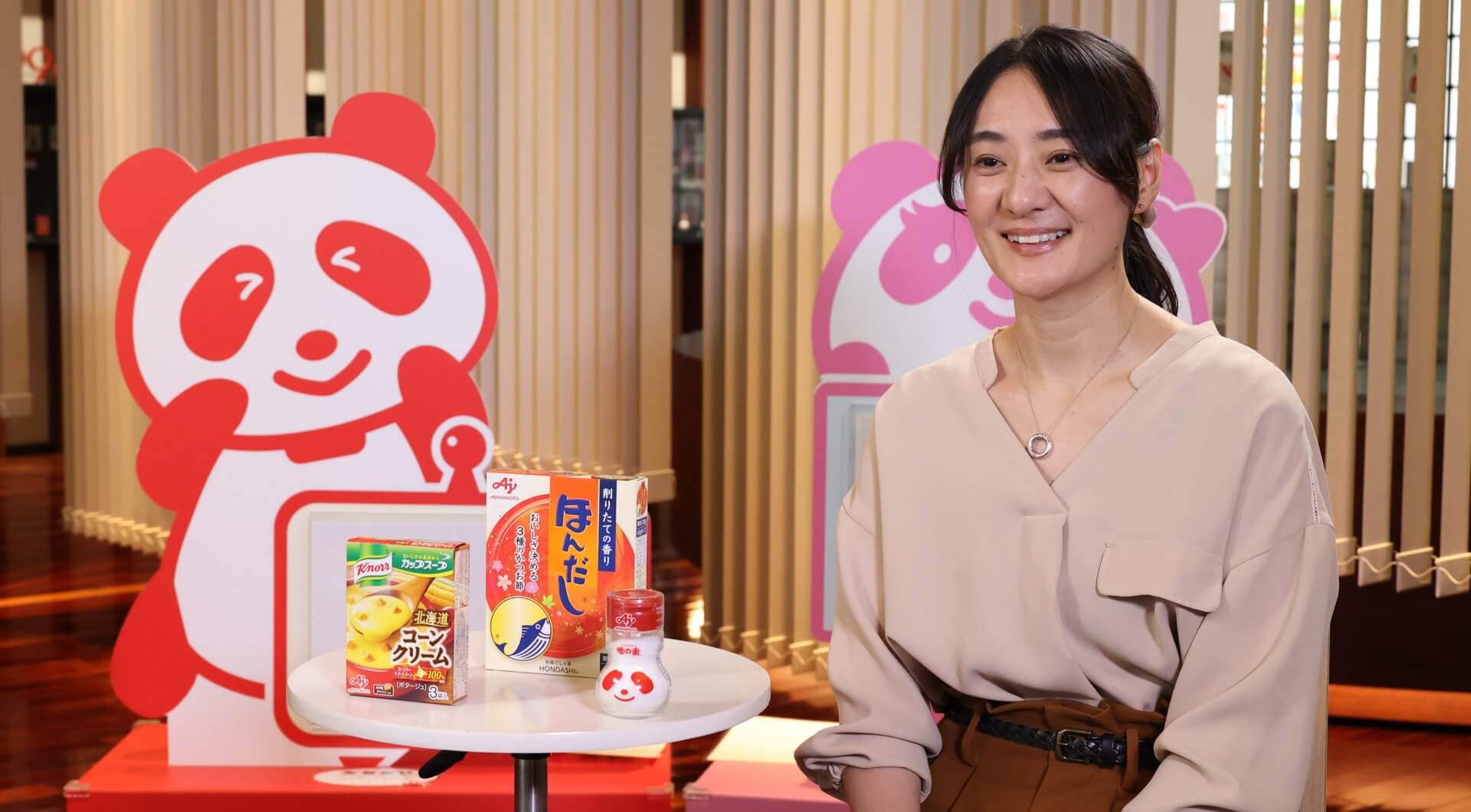
Ms. Sayaka Endo, Sustainability Development Department, Ajinomoto Co., Inc.
―― Please tell us why the Ajinomoto Group is working on “food loss and waste reduction” as part of its sustainability activities.
There are two main reasons.
The first reason is that it is essential for the continuity of our business. The Ajinomoto Group has a wide variety of products, including AJI-NO-MOTO®. Many of these products are made from crops, so this means that our business is also being sustained by crops. We are engaged in reducing food loss and waste so that such limited food resources can be efficiently recycled and used wisely into the future.
The second reason would be that it is necessary for building “resilient and sustainable food systems.” In actuality, food loss and waste poses not only the problem of food shortages but also numerous other challenges relating to food systems, ranging from loss of biodiversity to humans rights issues at production sites.
The Ajinomoto Group hopes to contribute to the building of more sustainable food systems by addressing these social issues through its business.
―― What specific activities are being conducted?
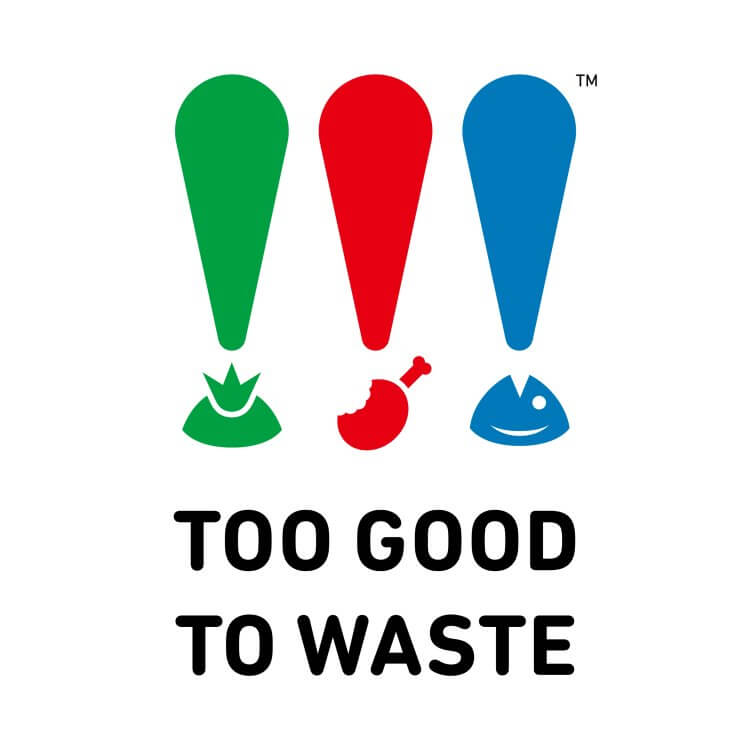
Logo of “TOO GOOD TO WASTE™"
The Ajinomoto Group created the brand “TOO GOOD TO WASTE™” to help advance our food loss and waste initiatives.
From the “upstream” to the “downstream”, a variety of actions are being deployed across the value chain. For instance, with “upstream, i.e., the raw material production stage,” we use up our raw materials for HONDASHI® and other products. And besides, we establish the food resource recycling process named bio-cycle for the Ajinomoto Group.
In terms of “downstream, i.e., the stage comprising wholesale, retail, the food service industry, and other consumption by consumers,” the “TOO GOOD TO WASTE™” brand was launched in 2022 to help advance our food loss initiative.
Additionally, useful information and recipes for reducing food loss and waste are being shared via the Ajinomoto Group’s owned media “AJINOMOTO PARK”.
Using Up HONDASHI® Raw Materials by Utilizing Even the Bones and Internal Organs
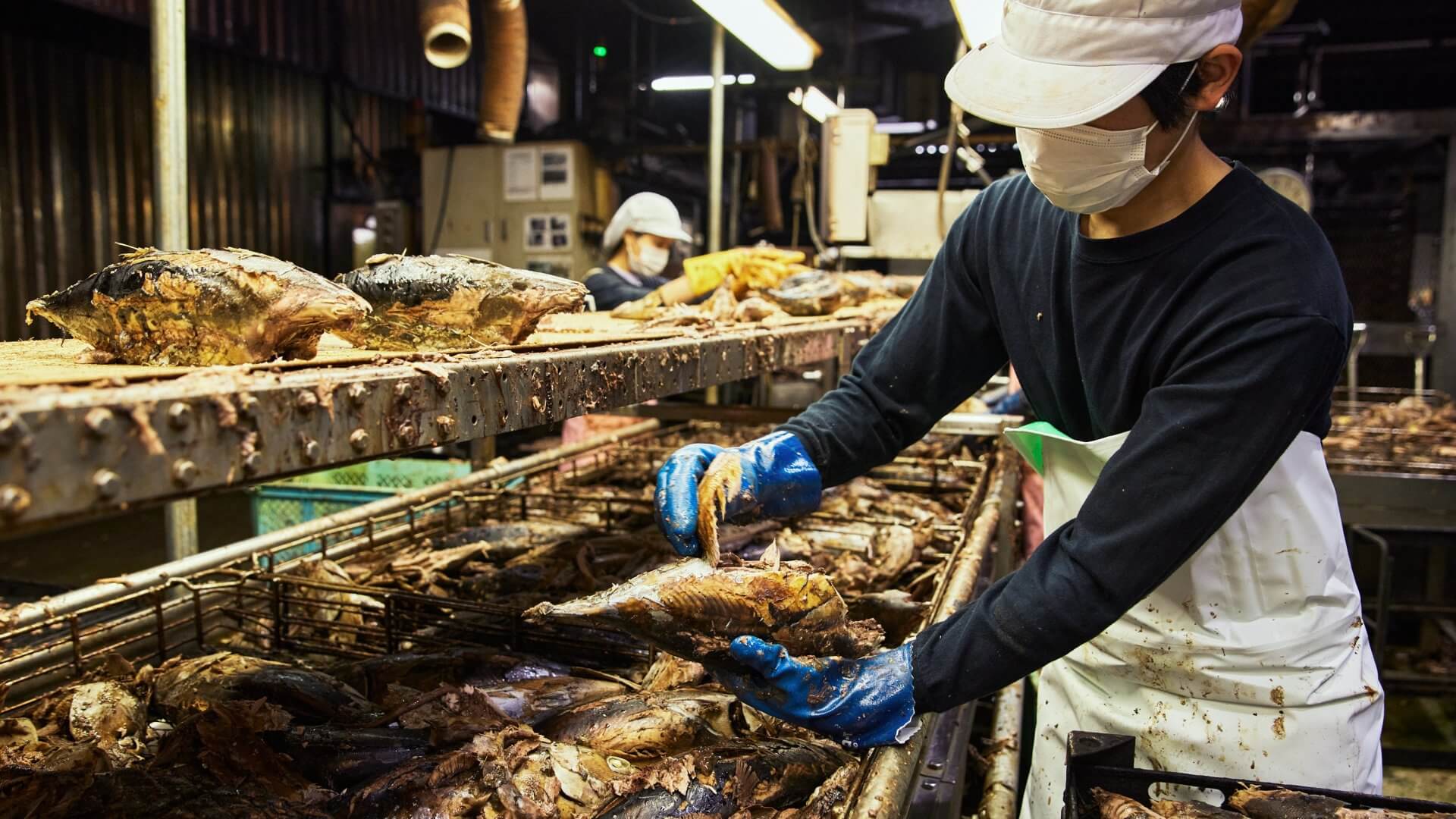
Sorting by-products in the production process of HONDASHI®
――What does it mean to use up HONDASHI® raw materials?
HONDASHI® is made from dried skipjack tuna, but only 20% of this raw material had been utilized. Most of its by-products, including the head, bones, and internal organs, had been discarded.
Then, since the establishment of KGK Co., Ltd. in 1997, we have achieved our philosophy of effectively using every part of our skipjack tuna.
There, they are currently engaged in efforts to thoroughly use up the raw materials, including those parts which had previously been treated as “waste,” by using such “by-products” as the head and internal organs to make fermented foods, using the broth taken from skipjack tuna to make seasonings, using the bones to make the calcium component within Daily Calcium HONDASHI®, and other such ideas.
――So, it really is being “used up.”
Likewise, another example is how we are ensuring that the raw material of corn in Knorr® Cup Soup is also used up. The by-products of the cobs and husks are used to make cattle feed, and the leaves and stems left at the cornfields are used to make organic fertilizer.
“Well-being” That Also Includes Society and Local Communities

Sugarcane is a raw material for amino acids
――What exactly is bio-cycle food resource recycling?
Glutamic acid and other amino acids, which are the basis of our umami seasoning AJI-NO-MOTO®, are made from sugarcane and other raw materials. The raw materials are mixed together with fermenting bacteria in a tank to produce this through fermentation, and the fermented liquid remaining after the amino acids have been extracted from the raw materials is rich in nutrients.
These kinds of by-products are then returned to local farmers and others as such precious resources as fertilizer. This fertilizer is thereby used to grow more sugarcane and other crops, which eventually turn into the raw materials for AJI-NO-MOTO®. We call this recycling of resources a bio-cycle. This initiative has also been well received by the local producers.
―― How did the bio-cycle come into being?
It first began in the Philippines with the agricultural use of by-products taken from sugarcane and other crops, and this was inspired by the growing awareness of global environmental issues in the 1980s.
This spread to such countries as Indonesia and Brazil before being commercialized in Thailand in 2001 and then developing within the Ajinomoto Group’s worldwide network.
――The Ajinomoto Group has been actively making progress in the area of sustainability since the 1980s. Where does this innovation arise from?
The Ajinomoto Group’s founding aspiration is “Eat well, Live well.” This has resulted in our current ASV (i.e., The Ajinomoto Group Creating Shared Value: initiatives to co-create social and economic value through its business, which have been the basic management policy of the Ajinomoto Group). I believe that letting this approach become deeply ingrained within the Company has had a significant impact.
――Have things continued to evolve to sustain innovation in tandem with this deeply rooted aspiration?
Our purpose had been “unlocking the power of amino acids to solve the nutrition- and health-related challenges. ” This has evolved into “contributing to the well-being of all human beings, our society, and our planet with “AminoScience.” This is our new purpose.
“AminoScience” collectively refers to the ingredients, features, techniques, and services gained from research and implementation processes spotlighting the function of amino acids. We have set the goal of bringing about “well-being” that is not only fixed on “human beings” in terms of “diet and health” but also encompasses the well-being of our “society” and “planet.”
Sustainability Doesn’t Have to Mean Being Constrained
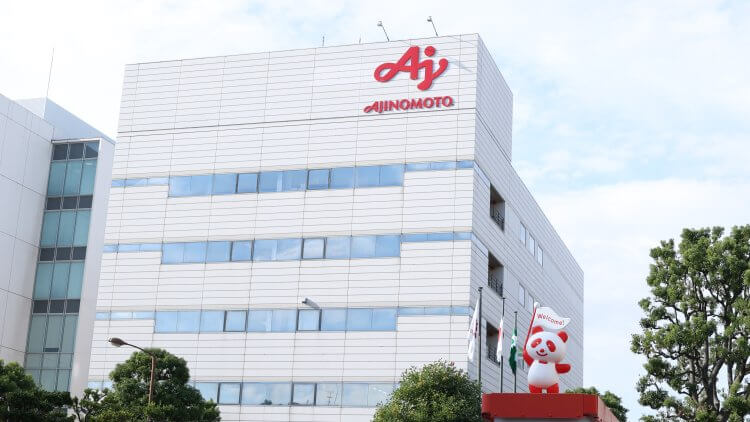
Ajinomoto Co., Inc., Kawasaki Branch Office
――Ms. Endo, as someone who is in charge of sustainability, what are your thoughts on “contributing to the “well-being” of all human beings, our society, and our planet with “AminoScience”?
I think that many people imagine the “environment” when they hear people speak of sustainability. However, sustainability also constitutes “human rights” and “nutrition” in addition the “environment,” and so I consider it to be absolutely crucial.
The Ajinomoto Group advocates “Nutrition Without Compromise.” This expresses our intention to make nutritious meals more accessible for all. And with this in mind, I feel that the idea of “Nutrition Without Compromise” embodies what is unique about the Ajinomoto Group.
There is more to deliciousness than just “taste.” Deliciousness is very much part of “culture” and can also be linked to people’s identities. Whether it is eating the seasonal fish of saury in autumn or drinking your chosen blend of coffee to unwind, a delicious “diet” has the power to enrichen our lives.
When all of these elements have been integrated, I believe that it will lead to “well-being,” which is to say “happiness.”
―― Lastly, please tell us about the Ajinomoto Group’s outlook on the future.
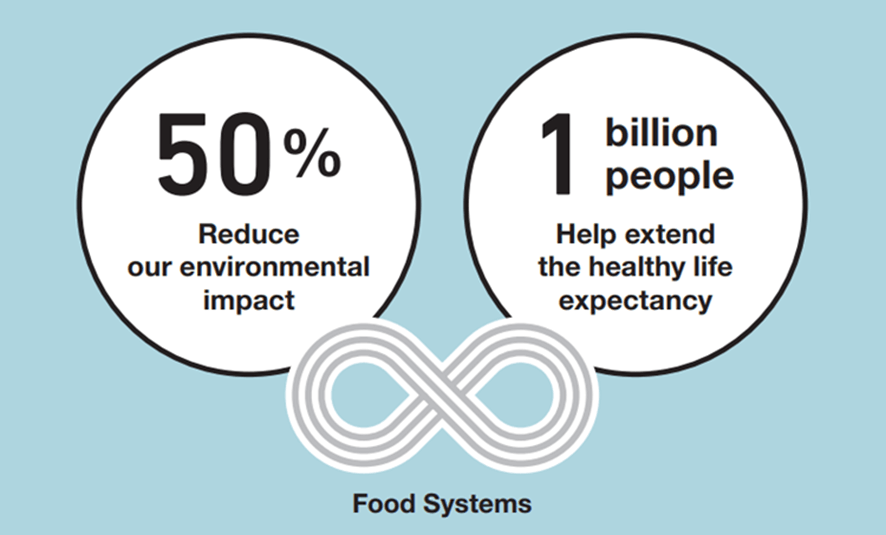
The two outcomes that the Ajinomoto Group is striving for by linking food systems
Having set for 2030 the two outcomes to reduce our environmental impact by 50% and to help extend the healthy life expectancy of 1 billion people, we will continue to work toward achieving our goals. We will continue to work toward achieving these goals, but there is something that needs to be taken into consideration.
Some people may have the impression that sustainability means facing “constraints.” In my view, however, sustainability is something that enables everyone to lead enriching and fulfilling lives with peace of mind.
And therefore, by leveraging the techniques and wisdom that our predecessors and the Ajinomoto Group have cultivated until now, we intend to contribute in ways that can be done precisely because we are the Ajinomoto Group and in ways that only the Ajinomoto Group can do.
Stories you may like
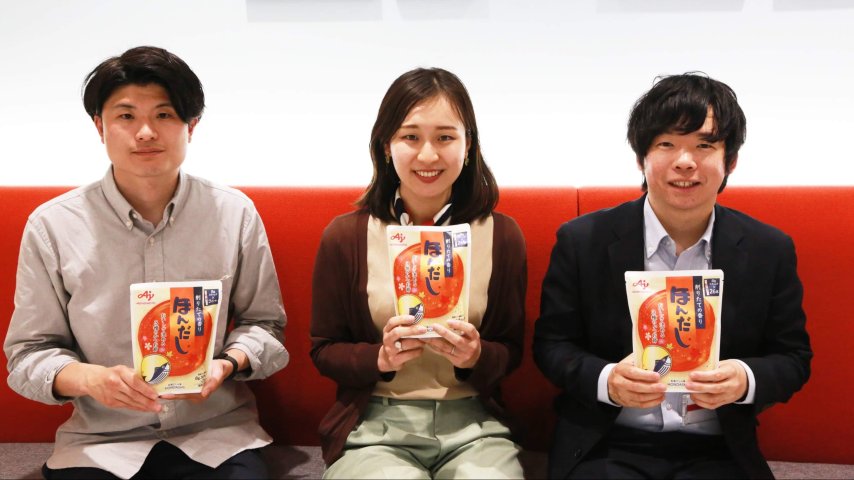
HONDASHI® Paper Packaging: Reducing Plastic Waste and Adding Fun
- Environment
- Food & Wellness
- Health and Well-being
- Sustainability / SDGs
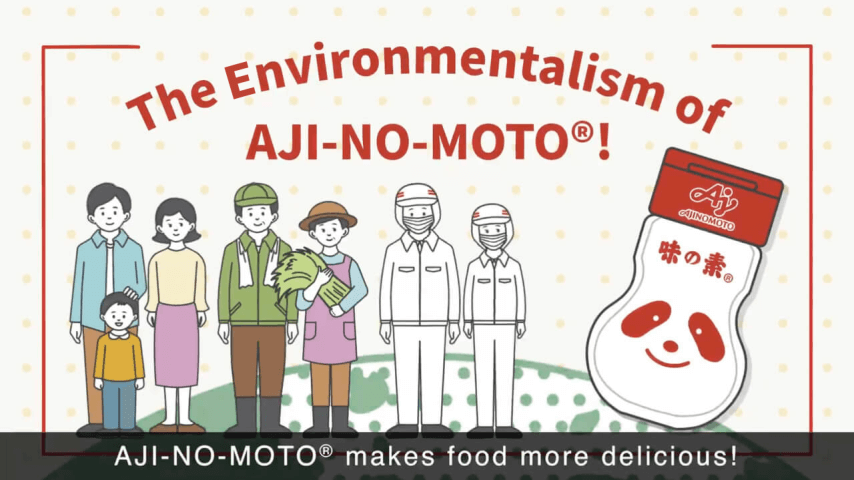
Completing the bio-cycle: AJI-NO-MOTO® co-products help to boost agricultural output
- Environment
- Food & Wellness
- Health and Well-being
- Sustainability / SDGs

Achieving sustainability by building healthy, long-term relationships
- Environment
- Food & Wellness
- Health and Well-being
- Sustainability / SDGs

